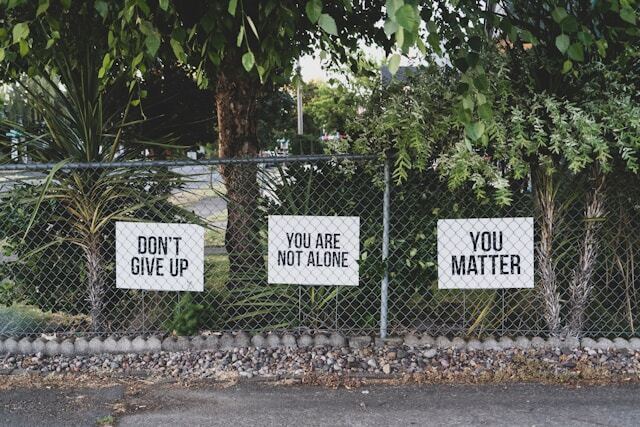
Midlife women can walk away from manipulation Photo by Mathias Reding on Unsplash
Midlife Women: When Disapproval Validates and Approval Undermines
By Joanna Poppink, MFT
Private Depth Psychotherapy for Midlife Women and Beyond
🌿 www.eatingdisorderrecovery.net
Introduction
Many midlife women who have survived narcissistic abuse find themselves confused by an unexpected dynamic: they feel validated by disapproval and undermined by approval. After years of navigating emotional control, they no longer seek praise from the narcissist—they brace against it. Approval often signals manipulation. Disapproval, though painful, can feel like confirmation that they’re growing beyond the narcissist’s reach.
These women enhance their homes, deepen their creativity, and expand their lives. And still, they imagine the narcissist—whether a former partner, adult child, parent, or friend—reacting. A frown. A stiff posture. A silent, judgmental stare. These signs of discomfort feel strangely satisfying.
Why? Because disapproval means they’ve done something the narcissist doesn’t control.
Over time, they begin to recognize the pattern: praise and criticism are not about truth—they are tools of manipulation. Praise rewards sacrifice and invisibility. Criticism punishes independence. Both tactics shrink a woman’s self-concept and tether her to roles that serve the narcissist’s ego.
This article explores how midlife women move through three psychological stages of awakening. It highlights how approval can undermine, how disapproval can validate, and how to rebuild a life that no longer performs for the narcissist’s gaze.
Stage 1: Believing the Narcissist’s Frame
“Their judgment must be right—so I’ll try harder to please.”
At this stage, the midlife woman accepts the narcissist’s worldview as her own. The narcissist—whether a partner, parent, adult child, sibling, or friend—offers selective praise for tasks that serve them: errands, emotional labor, invisibility. That praise feels like love, and criticism feels like truth.
She’s told:
- “You’re amazing at organizing.”
- “No one else could hold this family together.”
- “You’re strong because you never complain.”
- “You’re the perfect grandmother.”
- “You’re so generous with the children.”
Each statement is wrapped in a compliment but binds her to a narrow identity. She is celebrated only when she stays small. Her creative dreams, career goals, educational pursuits, or even interior design decisions are seen as threats to the narcissist’s control.
She learns:
- To equate usefulness with worth.
- To associate approval with self-erasure.
- To fear rocking the boat.
You may begin with the series introduction here.
Eventually, she forgets she once wanted more.
Stage 2: Doubt and Resentment Emerge
“Something doesn’t feel right—but I’m afraid to say it out loud.”
The midlife woman begins to question the imbalance. Her wins are ignored, her thoughts dismissed, her joy met with resistance.
She hears:
- “The children miss you when you’re out doing your thing.”
- “We can’t have a family gathering without you cooking.”
- “You think your little classes are more important than us?”
- “We need you to babysit—don’t you want to help the family?”
And then come the threats:
- “If you leave, I’ll fight you for the children.” (Though the narcissist has never taken part in their care.)
- “You’ll have to live in your parents’ guest room.” (Even though she’s building independence.)
- “Everyone will blame you for breaking up the family.” (Though many already know the truth.)
- “You’re too old to start over.” (Even as she feels herself just beginning.)
- “No one will want you.” (Used to isolate and erode self-worth.)
- “You’ll be penniless.” (Despite her skills, education, or legal rights.)
These threats are usually empty. The narcissist has no intention of following through. Their power lies in how effectively they freeze a woman’s progress.
At this stage, fear and resentment signal the beginning of awakening. A woman may not speak her truth aloud yet—but she’s starting to know it.
Stage 3: Awareness of the Control Mechanism
“Both praise and criticism were tools to keep me small.”
The midlife woman now sees the pattern with clarity. The narcissist’s praise feels false. Their disapproval feels strangely validating. Why? Because it confirms that she is no longer controllable.
She realizes:
- Praise was doled out only when she complied.
- Criticism was used to punish autonomy.
- Threats were bluffs meant to keep her in place.
The very things that once brought criticism—her confidence, creativity, financial decisions, and spiritual growth—are now signs that she is alive and becoming whole.
She starts to act for herself:
- She no longer imagines the narcissist’s reaction before redecorating or taking a class.
- She doesn’t explain her decisions to win approval.
- She feels discomfort but doesn’t shrink from it.
Disapproval becomes evidence of progress. Praise loses its spell.
Summary
Narcissistic abuse distorts emotional meaning. For midlife women, the cycle often looks like this:
- Praise and criticism become tools of manipulation.
- Approval rewards self-erasure.
- Disapproval punishes autonomy.
- Threats paralyze growth with fear.
Healing begins when a woman sees through the performance. She learns to live without the narcissist as her imagined audience. She reclaims the authority to define her own value.
FAQ
Q: Why did the narcissist’s approval feel good for so long?
Because approval was tied to safety. Many midlife women are conditioned to seek approval to survive—even at the cost of themselves.
Q: Why did I believe their threats?
Because the narcissist’s confidence masked their falsehoods, and because fear of abandonment can override logic—especially in long-term dynamics.
Q: Why does their disapproval feel validating now?
Because your actions no longer orbit their needs. Their disapproval confirms that you are becoming yourself.
Q: How do I stop performing for the narcissist, real or imagined?
Notice the performance. Ask: What would I do if I didn’t need anyone to approve? Then start doing that, in small ways, every day.
Resources
- Judith HermanJudith Herman – Trauma and RecoveryTrauma and Recovery
- Bessel van der Kolk – The Body Keeps the Score
- Elinor Greenberg – Borderline, Narcissistic, and Schizoid Adaptations
- Ramani Durvasula – Don’t You Know Who I Am?
- Wendy Behary – Disarming the Narcissist
Related Articles on This Site
Midlife Women Worksheet: Power After Narcissistic Manipulation
- Eating Disorders and Narcissistic Abuse: Why you attract narcissists
- Narcissistic Abuse from a Parent: how to heal
- Power vs. Control: A Life-Changing Distinction for Healing and Survival
- Outgrowing Relationships: a Powerful Act of Self-Love
Journal Prompts & Recovery Worksheet
Use the companion Narcissistic Abuse Recovery Worksheet to explore:
- What types of praise or criticism shaped your self-image?
- Which threats from the narcissist still echo in your mind?
- What do you want that you’ve been afraid to pursue?
- Where do you still seek permission to exist?
Work with Joanna
If this article resonates with you and you’re ready to heal from narcissistic abuse, I invite you to explore the possibilities of depth psychotherapy for midlife women and beyond 📧 Email:
Joanna Poppink, MFT, licensed private psychotherapist, online, CA, OR, FL, AZ
📧 Email:




 Midlife Women and the Cost of Compliance: Which path do you take?
Midlife Women and the Cost of Compliance: Which path do you take?


